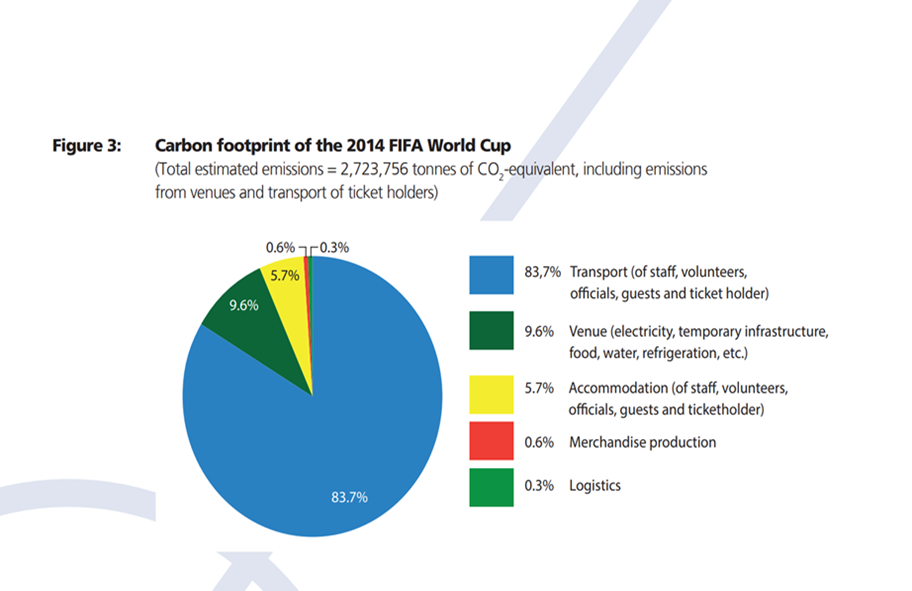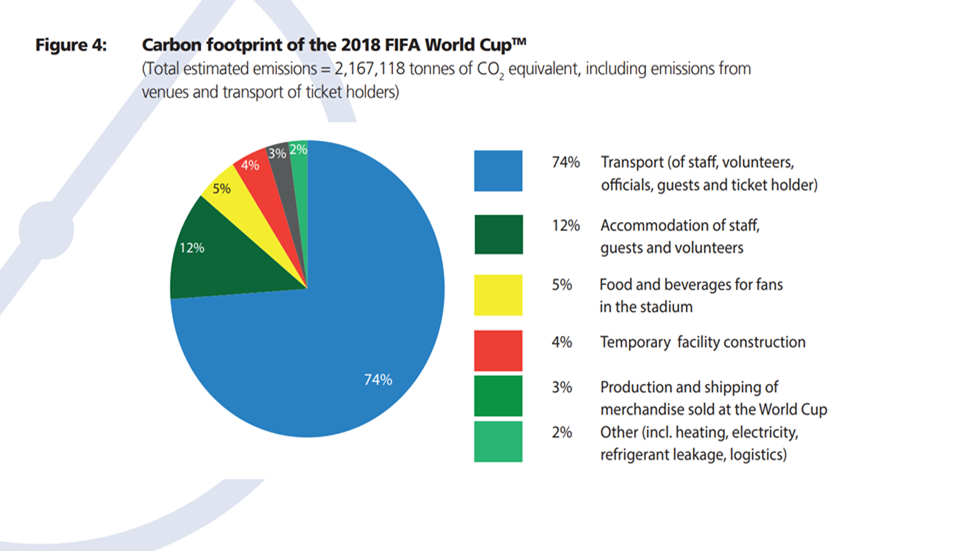- Homepage
- ESDES’s blog
- Responsible Natives
- Climate Change is not a game: Why Sustainable Tourism matters now more than ever
Qinisani Qalie Ndlovu
4 min.
29 September 2023
Sport has changed the lives of people through participation or tourism around the world, there are countless iconic moments that if compiled into a book, could rival the thickness of the oxford English dictionary. However, unsustainable tourist behaviour and sporting practices have become enablers of climate change, which threatens to take away the power that sport events hold in society. In his address at the 2000, inaugural Laureus World Sports Awards, Nelson Mandela, declared that: “Sport has the power to change the world. It has the power to inspire. It has the power to unite people in a way that little else does”. Sadly, sports events are under threat from climate change, yet a growing body of academic work argues that sporting events have a large carbon footprint which directly or indirectly contributes to climate change, Lopez et al (2023).
The Global sports industry market
sports tournaments list globally are from the soccer discipline with a combined payout of $141m, followed by the NFL Superbowl, baseball, Golf and Cricket, with a combined total of $185,3m in prize money. FIFA (2023) notes that a total of 2.45m people watched the 48 games at the FIFA world cup in Qatar 2022, meanwhile the NFL records that 18.82m fans have attended live games from 2008 to 2022, Statista (2023). The tour de France holds a Guiness World record for the largest crowd to watch a sporting event, in 2012, over a period of 3 weeks, 12million people watched the Tour de France.
Origins of carbon emissions in sports
By virtue of size and following, sporting mega events generate large carbon footprints, travelling, food and accommodation are three chief contributors to GHG emissions. This is where the environment and sports intersect negatively, for instance, the World Cup in Brazil is said to have generated about 2.7 million tonnes of GHG emissions FIFA (2014). A startling comparison, put forward by the Global Carbon Project, (2015) reveals that this figure is almost the amount of carbon footprint generated by the entire nation of Malta in 2014.
The movement of people from one sporting venue to another gives rise to short haul and long-haul domestic and international travel, the transport industry is a key culprit in exacerbating climate change effects, the very same sports that we love to watch are falling victim to the effects of climate change.
Figure 2 shows the breakdown of emissions of the FIFA 2010 World Cup by activity:

Figure 3 shows an increase in transport activity for the 2014 FIFA World Cup.

Figure 4: Shows that transport continues to contribute the bulk of Co2 emissions.

Effects of climate Change on sporting events
Outdoor Sports have borne the brunt of weather changes, take soccer for example, extreme weather patterns have forced the soccer governing body FIFA to alter its rules, any match that is played at 32 degrees and above must have a water-cooling break thirty minutes after play commences.
Limbe is a city in Cameroon that is experiencing effects of climate change through flooding and extreme heat levels, in 2022, the city hosted an African Cup of Nations soccer match, and the recorded temperature on the day was 34 degrees Celsius. The referee blew the whistle before the official ending of the match, it was later reported that he had suffered a heat stroke, and was suffering from severe disorientation. Health experts add that he could have slipped into a coma due to the body not cooling. According to the National Centre for Catastrophic Sports Injury Research, heat illness was the third most common cause of sports-related fatalities in U.S. high school and college football players between 1990 and 2020.
As observed during the winter Olympics, 80% of the snow used in Sochi, Russia in 2014 was artificial, and that number went as high as 98% for the Pyeongchang Games in South Korea in 2018. According to a recent study, half of the former Winter Olympic host cities could be unable to sponsor winter games by 2050, due to a lack of snow and ice, Scott et al (2023).
In the United States of America, the U.S. West Coast has been fighting fires, according to experts, the fires can burn for a month. Neighbouring states have been similarly impacted: the smoke from wildfires has spread as far east as Maine, and Ida and the entire East Coast, it is said that these disasters could directly impact half a dozen NFL teams, and more than 20 NCAA Football Bowl Subdivision (FBS) programs.
Conclusion
In as much as sporting events contribute to the tourism industry, sustainability in sports needs greater attention and application than it is receiving. Academics, policy makers, city and town managers, sports professionals and fans, will have to unite to save their favourite pastimes, by quickly accepting that sporting events are encouraging change in climatic conditions. Unsustainable tourism like poor choice of transportation must be “criminalised’’ as the world draws closer to the United Nations 2030 sustainable development goals deadline.
References
2014 FIFA World Cup Brazil™. FIFA, 2014.
Annual survey of football injury research (2021).
BPCE L’Observatoire. (2020), “La filière sport prend ses marques”, February.
FIFA Sustainability Report (2023)
FIFA−Fédération Internationale de Football Association, 2014a. Sustainability report of the
Global Carbon Project, 2015. Global Carbon Atlas. Available at: http://www.global carbonatlas.org/?q=en/content/welcome-carbon-atlas.
Lopez R., Nicole S., Legardeur., J and Faucheu, J. (2023). Mapping circular economy projects: a case Study of a major company in the sports & Outdoor industry.
Scott, D., Knowles, N. L. B, M, Siyao., Rutty, M.Icon &Steiger., R. Climate change and the future of the Olympic Winter Games: athlete and coach perspectives.
Learn more about how ESDES Business School is addressing Unsustainable tourism










